How a prison musical helped one woman spend Christmas with her dad
When Marissa sat in the audience of a theatrical production of “Godspell” earlier this month in a Colorado Springs gymnasium, she had traveled more than 900 miles to see the show.
But it wasn’t just a musical she was there to see.
It marked the first time in nearly a decade the 30-year-old was able to spend time with her dad at Christmas.
Marissa, who asked that her last name be withheld to protect her privacy, tells TODAY.com she knew she couldn’t miss the opportunity.
“My dad has been in prison for almost seven years,” Marissa says from her home in northeastern Iowa.
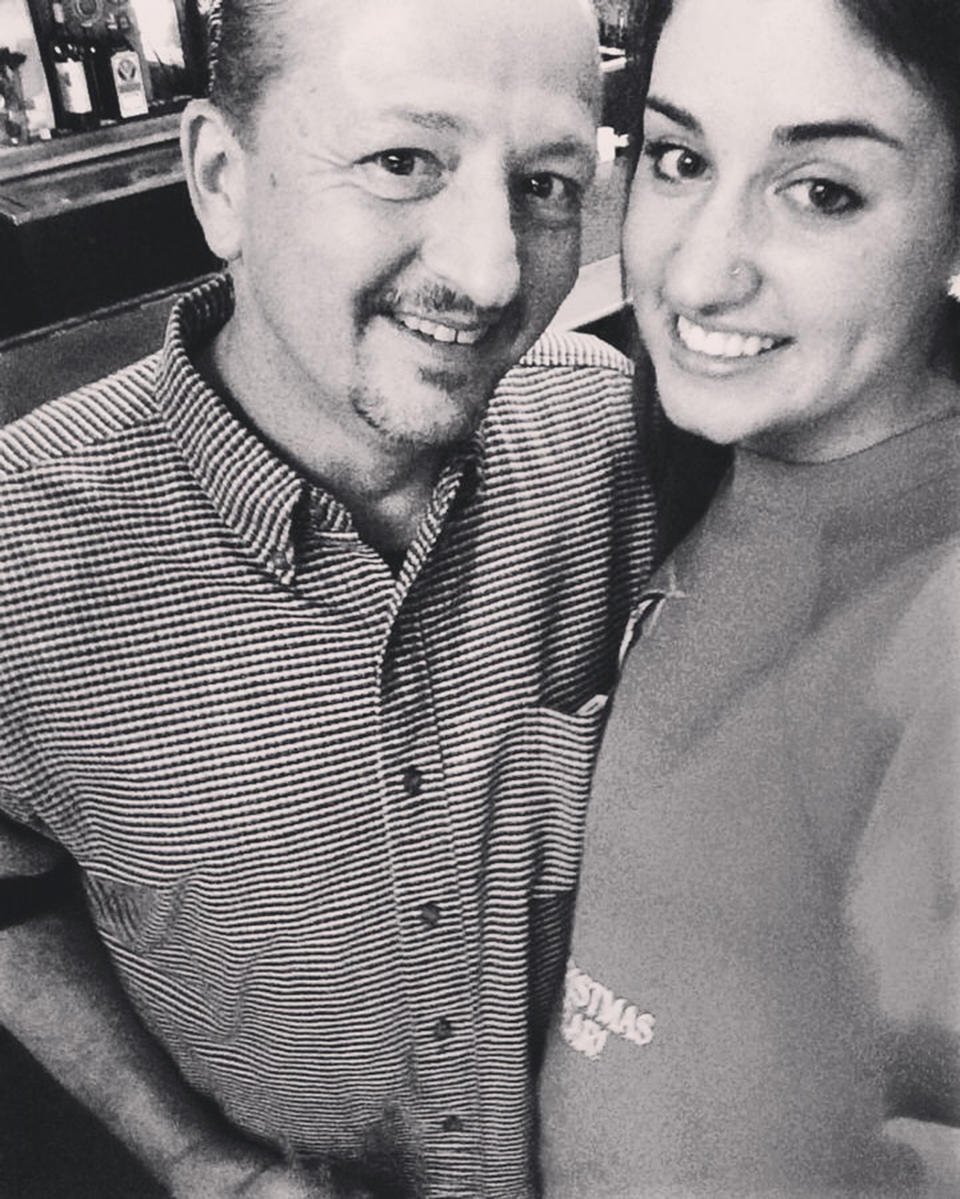
The father and daughter reunited thanks to the University of Denver’s Prison Arts Initiative, a creative arts program generated to enrich the lives of incarcerated men and women.
"The Prison Arts Initiative is part of our broader education (programming)," Annie Skinner, the public information officer for Colorado Department of Corrections tells TODAY.com. "We are trying to provide opportunities for incarcerated individuals to really change their behavior, to find a new way to think about things and to express themselves in healthy and positive ways and to learn new things."
It's a program the University of Denver is proud to support.
"One of DU’s key missions is to support the public good," Jon Stone, media relations manager at the University of Denver, tells TODAY.com "DU PAI is a great initiative that’s geared toward community."
This year, DU PAI produced five theatrical showings of "Godspell," the biblical musical based on the Gospel of Matthew.
Ashley Hamilton, director of DU PAI, tells TODAY.com that 150 incarcerated residents participated in the theatrical productions.
"The project took six months to come together," Hamilton, who founded DU PAI five years ago, says. "This is our fifth large production and this was a really unique one, because it was a collaboration between facilities."
From set design to costumes and props, the productions were created entirely by residents at Fremont and Colorado Territorial Correctional Facilities.
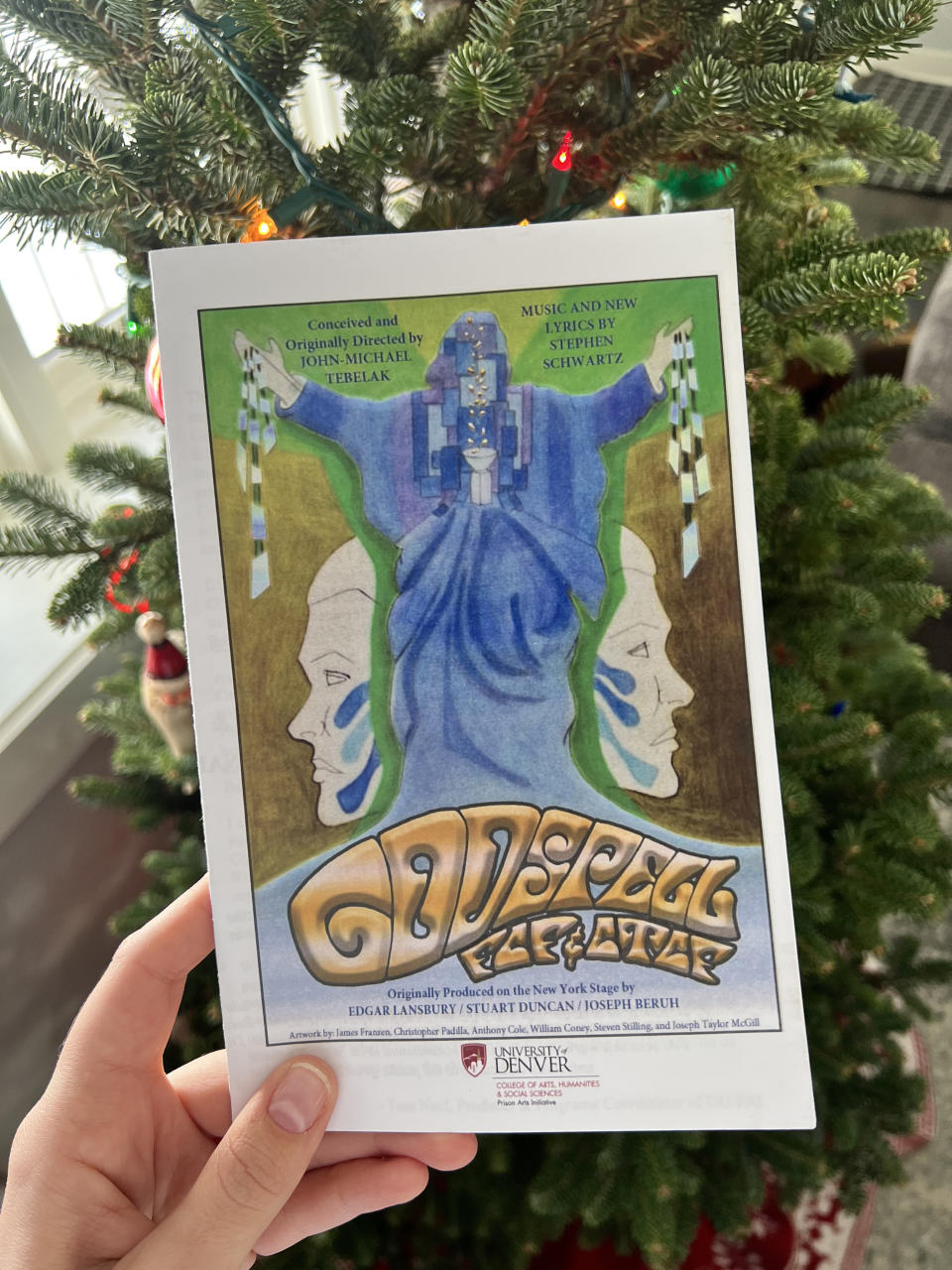
Skinner says the art initiative is one of the Department of Corrections’ “key programs for rehabilitation.”
"People want to look at this as an arts program and it’s great for expressing, but a lot of what it does is focus on reducing recidivism," she says. "If we can work on rehabilitating people on the inside, and helping them get connected with something thats positive and keeps them passionate and engaged and interested in moving forward, connected to their families and other people, promotes social skills — that reduces the chance that they’re going to reoffend when they’re released into the community."
Skinner adds that DU PAI programming also gives individuals serving longer term sentences purpose beyond the walls.
"When we create an environment where people have purpose, that creates a less violent, less traumatic environment both for our incarcerated population, but also for our staff," she says. "Really what it’s doing is increasing public safety. It’s about the broader outcome in the work that we do in trying to change people’s perspectives and trajectories."
Marissa tells TODAY.com the production was a "totally different" visitation experience.
"Normally, you’re allowed to hug once for a couple seconds and then you are just sitting at a table together for eight hours in a room that looks kind of like a school cafeteria," she explains. "There’s other families that are sitting at tables near you so it’s not super private (and) you’re not allowed to talk to anybody else that’s there."
She adds, "It’s also very uncomfortable for me to go in there. I’m anxious and I don't like being in the prison. I’m sure there are very few people who would. As much as you’re looking forward to the visit (and seeing your loved one), there are all these rules, so you feel very much part of it. It’s not that fun of an experience when you’re going for a visit."
Marissa says that she can remember the day in summer 2022 her dad told her over the phone he would be trying out for the show.
"I remember him telling me that he was going to learn a monologue," she says of her dad's audition.
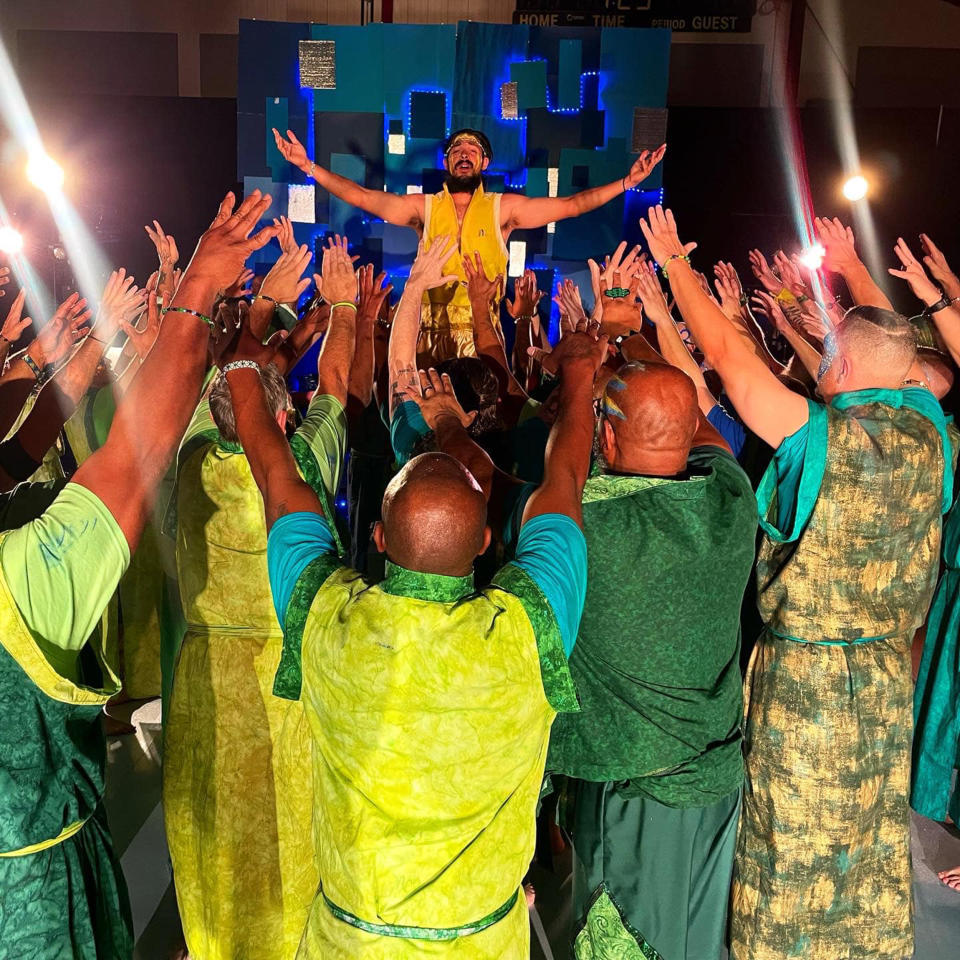
When he landed a role, Marissa could tell her dad was getting excited.
"He slowly started getting more pride in what they were doing and he was super excited about it," she says. "It takes a lot to get people excited in there, so I knew I couldn't miss it."
Despite dates getting changed "multiple times," Marissa made it to the Colorado Territorial Correctional Facility gymnasium on Dec. 17, 2022 and sat front row to see her dad perform.
"We had folks fly in from all over," Hamilton says of the show dedicated to families of incarcerated residents that greeted more than 80 loved ones. "The performance was truly special. There was a really big sense of community and joy in the room."
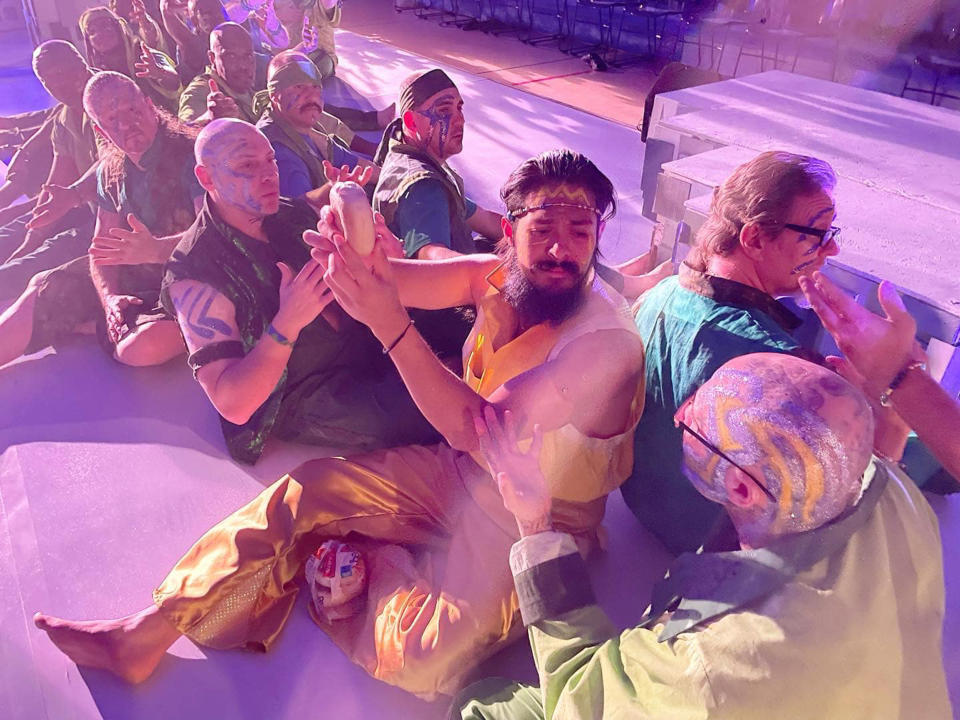
After the performance, DU PAI hosted a small family celebration.
"They have cookies and sit and hang out," Hamilton says. "Folks get to meet each others’ family and it is really special we get to do that."
Marissa says being able to visit with her dad in this way was "surreal."
"I was expecting to be taken out of gym, because it’s a prison, but the play ended, they all went and changed and they brought a bunch of chairs out," she says. "Some of the guys still had glitter on their face and everyone was sitting around with their families. They were all just so happy and everyone’s families were so happy. It felt like the real world for once."
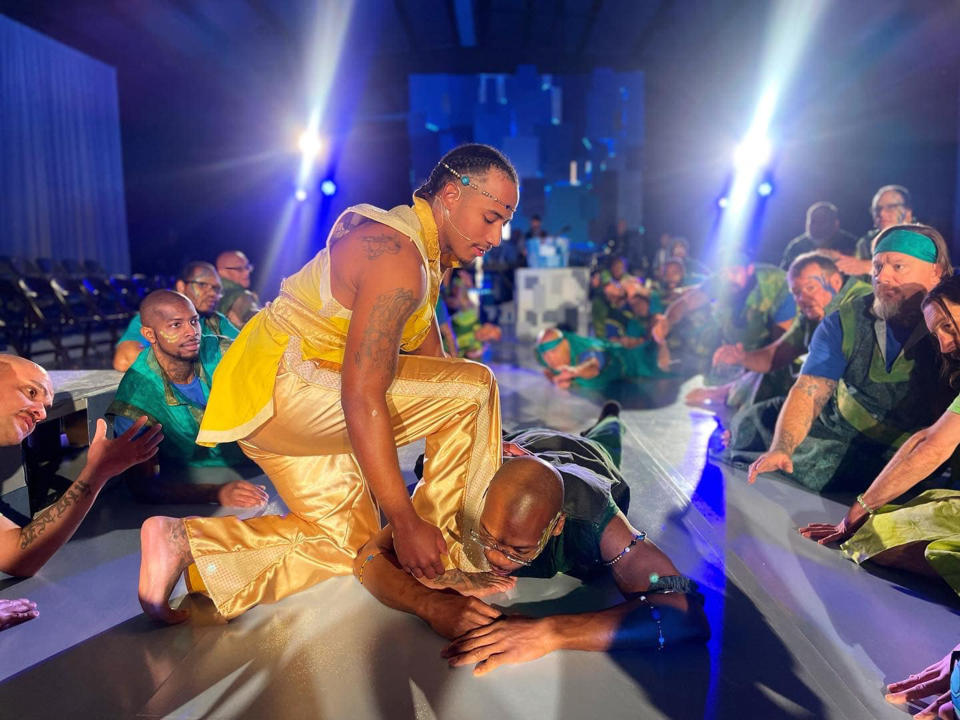
Marissa tells TODAY.com the family programming is not one she takes for granted.
"We just got to talk and be normal," she says. "I always say you don't realize how lucky you are to sit on the couch with your dad. You don't really get a normal visiting relationship when they’re in prison. We talk on the phone all the time, but it’s the first time I felt like a normal person in there."
Hamilton says the program is more than musicals — it’s an investment in community.
"If you’re reconnected with your family, you have a much higher chance of not recidivating. In a very real way, I watched multiple families reunite after this show," she says. "You can take it as face value, but what we all know that the play is the vehicle by which the deeper work is happening."
This article was originally published on TODAY.com